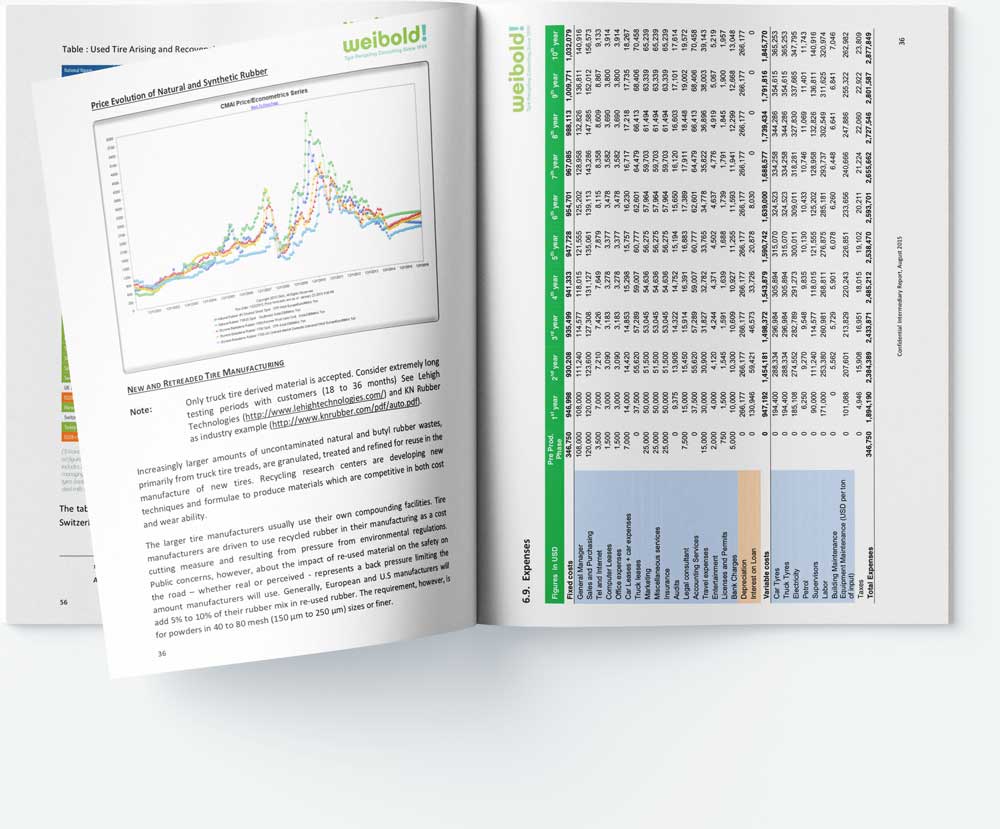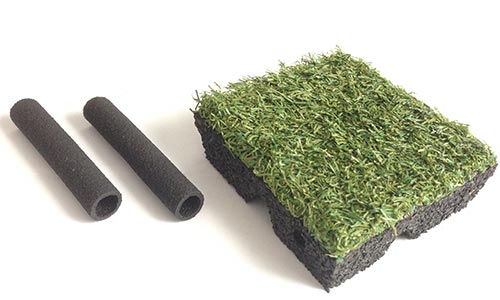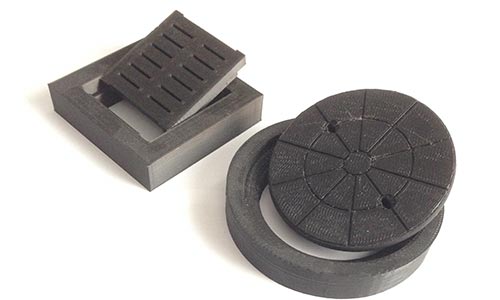
Tire Recycling Consulting
Pyrolysis Consulting
Shop
Webinars
Used Equipment
Advertising
News Events FAQ About Us Contact Search
News Events FAQ About Us Contact Search
Tire Recycling
Commission an independent technical and economic assessment of the proposed terms of an investment, technology licensing contract, or partnership agreement in tire recycling.
Switch to tire pyrolysis
Formal procedures preceding investments, technology licensing contracts, and partnership agreements often require an independent third party assessment. Contracting parties need an unbiased report on the merits and risks of the proposed transaction. Weibold’s Due Diligence module provides an expert analysis of the proposed terms. The terms will be evaluated from a technical and economic standpoint and compared to industry standard benchmarks.
Weibold’s service will protect your investment in tire recycling business, verify or falsify its validity, and provide substantiated arguments for improvements of the terms during the negotiation phase.
Weibold will first verify the technical claims made as part of the transaction. Technical feasibility and risks associated with the technological aspects of the tire recycling project in focus will be validated and any discrepancies highlighted. Cost and price assumptions will be checked against industry standards. If there are economic assertions they will be recalculated and verified for accuracy and plausibility. Weibold will generate a report with detailed matrices listing compliance and deviations based on a set of criteria that are pre-agreed to by the client.
Weibold is conducting trend, market and technology studies for Clients around the globe. Our Clients include plant operators, investors, lenders, recycling associations, technology providers, and product manufacturers. Now selected cross sections of the knowledge we have collected and pooled in our research database is available for recycling strategists and operators looking for innovations and trends on specific subjects in world-wide markets.

The full-scale Bankable Business Plan gives the Client a detailed industry description and outlook, inform about existing and future target markets, include a competitor analysis, financial modelling tool as well as information about regulations. Recycling tires into materials such as steel-free crumb rubber and fine rubber powder used to be a profitable venture; however, due to market saturation in developed economies, tire recycling companies might want to shift their focus from raw materials to potentially higher-priced consumer goods made from recycled rubber or even virgin rubber which can be replaced by tire-derived materials.

In this Pre-Feasibility Study, Weibold considers the latest developments world-wide in utilizing ELT derived textile fraction for purposes other than incineration. The work will result into a list of companies, explaining the following: a) the methods for processing, b) the technical readiness level, c) any successful references, d) logistical considerations (low weight/volume vs. capital investment), e) and to what extent this application could be applied to the Client's specific situation.

The document is both an introduction to manufacturing of sewer covers and grids made out of end-of life tires (ELT) explaining input materials, processing techniques, manufacturers, suppliers of technology, prices, materials, characteristics, life expectancy, etc. It will be based on research and preparatory work performed for the specific situation of the customer in the target area. Recycling tires into materials such as steel-free crumb rubber and fine rubber powder used to be a profitable venture; however, due to market saturation in developed economies, tire recycling companies might want to shift their focus from raw materials to potentially higher-priced consumer goods made from recycled rubber or even virgin rubber which can be replaced by tire-derived materials.